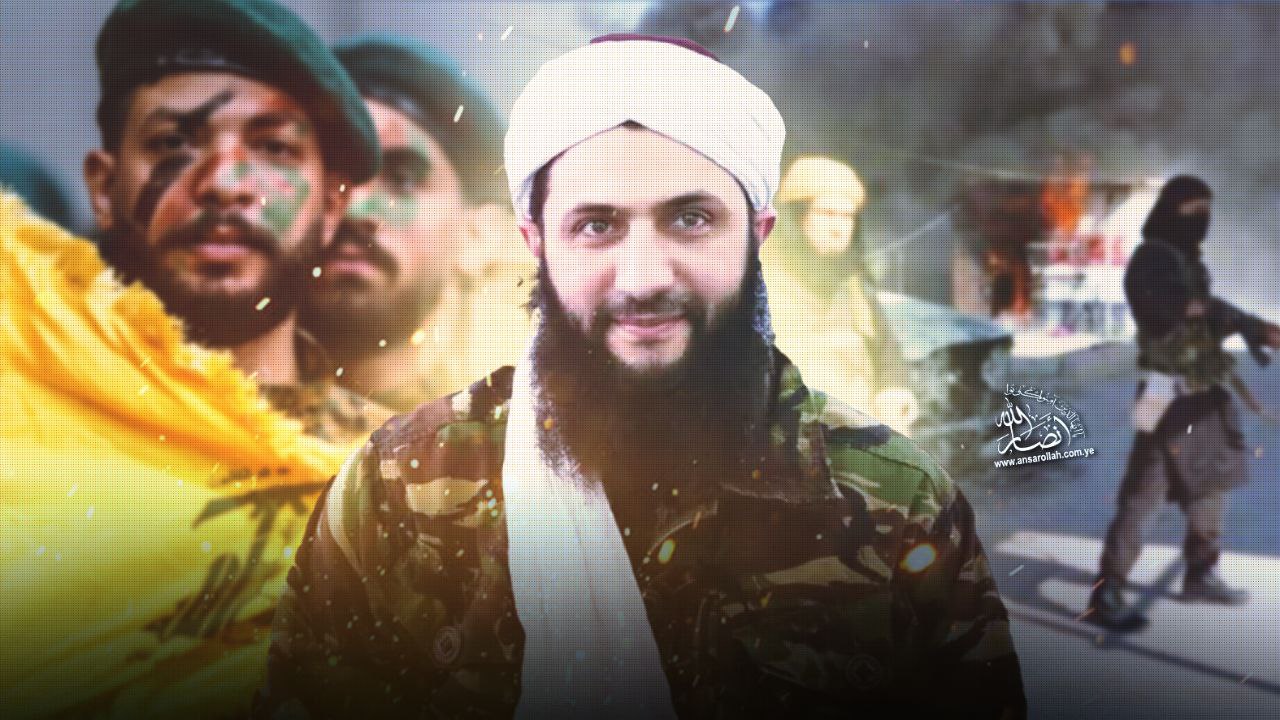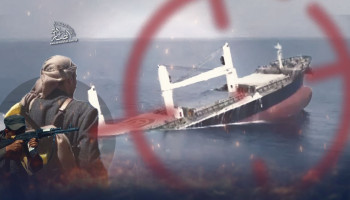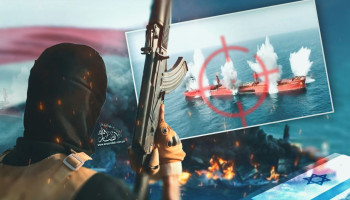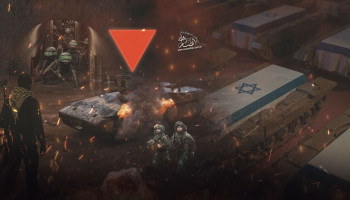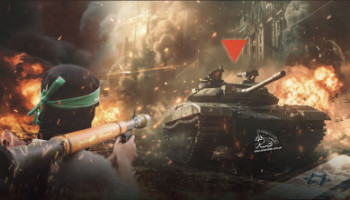Recently, the discourse has intensified around the "need to disarm Hezbollah" as a preliminary step toward clipping the party’s wings before eliminating it altogether, as the enemy plans. Although Americans and their allies inside Lebanon are well aware of how sensitive this issue is, it has nonetheless become the most crucial bargaining chip through which Lebanon is being blackmailed and manipulated.
Leading this mission is the U.S. envoy to the region, Thomas Barak. He carries the stick in both hands and spares no effort in meddling in Lebanese affairs—sometimes through threats from the Zionist entity and its renewed aggressive airstrikes, and more recently, by threatening Lebanon with extremist groups in Syria. He warned that “if Lebanon doesn’t move, it will return to Bilad al-Sham,” meaning that if the Lebanese state refuses to align with the American agenda, Washington could instruct the terrorist Jolani to move under the pretext that Lebanon is part of Syria.
What’s striking is the complete silence from both the Lebanese government and presidency in the face of this blatant American interference—silence that borders on complicity. There appears to be no readiness to reject or even express discontent.
In light of this dangerous reality, Hezbollah faces a new chapter of confrontation. The American-Zionist project does not tolerate the presence of an armed resistance near the Zionist entity occupying Palestine, nor will it accept Hezbollah’s participation in governance or being part of the state. Arab states are marching in lockstep with Washington, chief among them the criminal Kingdom of Saudi Arabia, which brazenly and shamelessly champions the issue of Hezbollah’s disarmament both politically and through media campaigns. Recently, Saudi envoy Yazid bin Farhan was dispatched to Lebanon to pressure political forces into pursuing this option and to force Hezbollah to relinquish its weapons.
What’s unfolding is part of the broader American-Zionist blueprint for the region under the banner of the “New Middle East.” The Zionist ambition is no longer limited to normalizing ties with Arab states; the Zionist entity has moved beyond that and is now working to fully dominate the region and implement a strategy of unchecked aggression whenever and wherever it chooses.
Returning to the matter of Hezbollah, the party now faces a serious existential threat and must prepare to confront challenges on three fronts. The most prominent of these is the Israeli enemy, which has yet to abide by the ceasefire agreement and continues its expansionist agenda in southern Lebanon, violating Lebanese sovereignty and launching continuous air raids.
The second front that adversaries aim to activate against Hezbollah involves the Jolani card—mobilizing extremist groups to infiltrate Lebanon and engage in combat under various pretexts. Chief among them is the claim that Lebanon is part of Syria, a narrative gaining traction at an alarming rate. Another justification being pushed is that Hezbollah supported President Bashar al-Assad’s regime in fighting Jolani and his group. Thus, the Syrian front has transformed from a secure rear base for Hezbollah—critical for arms supplies since 2006—into a direct threat.
The most dangerous front, however, is the internal one. The enemy is keen on activating its tools inside Lebanon against Hezbollah, focusing on the issue of disarmament and assigning the task of defending Lebanon solely to the national army. As widely understood, both the Lebanese government and presidency were carefully selected by the Americans, and they are expected to dutifully execute the roles assigned to them. All eyes remain fixed on Hezbollah.
These anticipated scenarios may unfold simultaneously, compounding the threat. From a worldly political standpoint, Hezbollah may not be able to escape this tightening noose. However, with divine guidance, faith in Allah, and religious and spiritual preparedness, Hezbollah believes it can thwart all plans and overcome the existential threats it faces by Allah's will.
Hezbollah, through its Deputy Secretary General Sheikh Naim Qassem, has made it clear that the issue of disarmament is a red line—non-negotiable and non-compromisable. He affirmed that Hezbollah has completed its process of restoration and rebuilding, is now in a phase of recovery, and is fully prepared for confrontation on all levels.
Hezbollah is fully aware of the magnitude of the dangers it faces, just as the Islamic resistance movements in occupied Palestine are, along with the Popular Mobilization Forces in Iraq, the resistance in Yemen, and behind them the Islamic Republic of Iran. The implementation of the “New Middle East” or so-called “Greater Israel” will only proceed through the defeat of the resistance axis. But that has not happened—and will not happen.
Failure is the prevailing reality for the Israeli army in the Gaza Strip, and it will be the same in any confrontation with Hezbollah. As for Yemen, it continues to be a nightmare for the Zionist entity to this day.
We are now facing a clearly defined plan, but its implementation will be the most dangerous phase for the United States and its regional allies. If America dares to move toward a military option against Hezbollah—activating its proxies, including the Zionist entity and extremist groups in Syria, Yemen will not stand idle. It will play a major role in supporting Lebanon and Hezbollah, and victory will belong to the resistance axis. In the end, the oppressor will meet their downfall.

